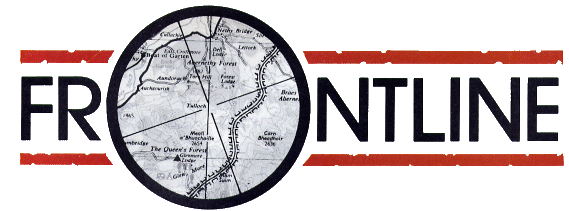


AT LAST, after months of bashing out Frontline on my old battered typewriter, I have a shiny new superconvenient Amstrad PC word processor. With this marvel of fairly modern technology I can rearrange all my sarcastic comments at the touch of a button, instantaneously delete paragraphs of philosophical waffle, change typeface to my heart’s content, and even correct my appalling spelling. I am enchanted. I am also discovering for the first time that computers really can be useful.
Obviously computers can play an important everyday role in a business. But it was one of the fanciful fallacies of what the popular press called ‘the computer boom’ — the flurry of home-computer-buying that has slowed down because most people who want one have now got one — that a home computer could work the same kind of labour-saving wonders. One heard stories of somebody’s friend who had ‘computerised his home’ or ran his central heating with the computer. Parents bought computers in the firm belief that a Spectrum or Commodore would give their child an education in the modern and apparently all-important mystery of the computer, hoping that once they’d got tired of the games that came with it — Horace Goes Skiing, Scrabble, the immortal Radar Rat Race — they would start to put their machines to ‘proper’ use.
But what really happened was that the child, having got tired of Horace Goes Skiing and perhaps found that BASIC could make the border go a funny colour or print ‘Dundee United Rules’ thousands of times on the screen, would proceed to more sophisticated game software. Parental scorn would start: ‘You’ve not bought another stupid game, have you? I didn’t buy that computer so you could spend time playing silly games on it. Why don’t you do something useful? Why don’t you learn to program?’
Some young computer-owners did indeed learn to program. But what did they program? What was the only thing there was any point in programming? Games!
Perhaps you could run the central heating from a Spectrum, but modern heating systems have perfectly adequate control systems of their own. The contents of the freezer can be monitored by opening the door and looking in. The small memory of home computers, and the tacky keyboards of early Spectrum models, preclude serious word processing. In fact, the home computer has only one nongaming function: it provides a kind of familiarisation course for the few schoolchildren who do go on to commercial programming. Whatever uncomprehending parents may believe, a home computer is nothing more than a flexible, fascinating games machine.
And we should not be ashamed of that. It can be frustratingly difficult to convince those who have never come across a good computer game that they can be as valid an intellectual pastime as traditional board games and puzzles; they lack the social aspect of group gaming, but properly used they offer the solo player a wealth of entertainment at his convenience.
It’s only prejudice that compartmentalises entertainment, finding live theatre and reading thoroughly good, television dubious, and computer games a mind-rotting invention of the devil. There are bad and good plays and bad and good computer games.
And it is only a more specialised prejudice that considers a poky little home computer — with what is, these days, a tiny memory — wasted on games. Though my gleaming new word processor is a great convenience, and invaluable for processing PBM turns, nothing will convince me to write my novels on it.